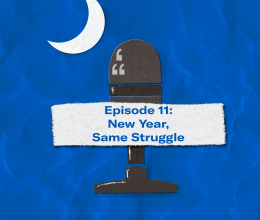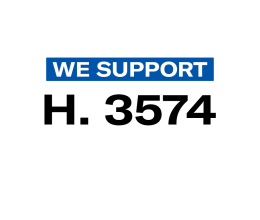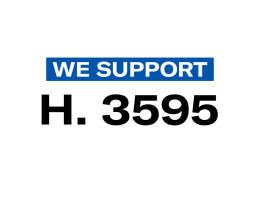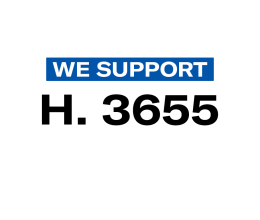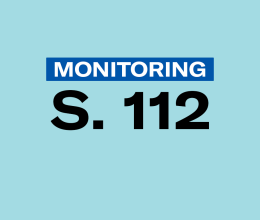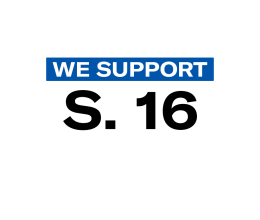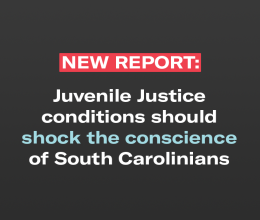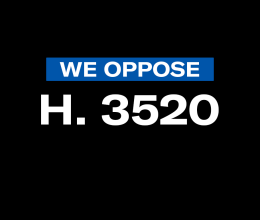
Under the care of the S.C. Department of Juvenile Justice (DJJ), South Carolina children live in overcrowded and understaffed facilities, under threat of rampant uncontrolled violence from staff and one another, in levels of unsanitary filth that would not be acceptable for a dog kennel.
Originally filed in April 2022, this lawsuit demands that the State provide the basics for children in its care: “clean water, dry beds, healthy food, safety from violence, freedom from solitary confinement, meaningful access to education and mental health resources, and accommodations for children with disabilities.” The ACLU of South Carolina represents the plaintiffs in this case: the South Carolina NAACP, Disability Rights South Carolina, and Justice 360. Our legal partners in the case are the NAACP, Wyche, and Jenner & Block.
DJJ leaders know and have acknowledged repeatedly that the conditions in their facilities are unacceptable and inhumane – but they have not acted swiftly to correct them. Toilets are frequently stopped up for weeks on end in DJJ facilities, leaving human waste in the open where children sleep. Showers and cells are infested with mold, and children go hungry rather than eat food that is rancid, contaminated, or contains cockroaches. DJJ’s own internal reports indicate that a boy was hog-tied with handcuffs and left on the floor for hours; other children have been subdued with pepper spray and tasers; others are kept in solitary confinement for days on end.
Our complaint lists the horrors faced by children in DJJ custody. Child 1, a 14-year-old, is routinely targeted for abuse by other children and once witnessed a riot where another child’s jaw was broken. Child 5 was held in isolation and not given any schoolwork. Child 9 was isolated for weeks in a wet holding cell with a broken sink and toilet and no access to a shower. Child 12 has been assaulted by DJJ staff five times, including one time when he was punched so hard in the ribs that he struggled to breathe the next day.
In April 2022, SCDJJ reached a settlement with the U.S. Department of Justice resolving an investigation at the Broad River Road Complex. While DJJ leaders said they would work to improve conditions in all of their facilities after the settlement, evidence suggests they have done no such thing. The rates of violence in SCDJJ’s facilities have only increased.
This isn’t the first time DJJ has faced public outcry over its treatment of children. Pulitzer-winning reporter Howard James visited DJJ facilities in the 1960s and described conditions that were “horrible beyond belief.” DJJ was sued for violating the rights of children in 1990, lost a lawsuit in 1995 that forced it to implement policy changes, paid $1.1 million in 2002 to settle claims that children as young as 10 years old had been sexually assaulted in their facilities. Staff at a Columbia facility walked out in protest of unsafe conditions in June 2021. DJJ facilities have since been wracked by large-scale riots in 2022 and 2023 that left children injured and traumatized.
Why this case?
We are suing to end the inhumane, unconstitutional, and illegal treatment of children by the State.
Unlike the S.C. Department of Corrections, the DJJ has a rehabilitative purpose written in law. Children are supposed to leave DJJ better off than when they came in. Instead, children are routinely subjected to brutal punishment and abhorrent living conditions. Rather than fix the problems, DJJ leaders have made excuses while children suffered for years on end.
As of late June 2023, DJJ held 284 children in custody. These children are disproportionately Black and disproportionately come from poor families. Many of them suffer from one or more mental illnesses. Our clients, who all serve children as a part of their mission, have all had to redirect their time and energy to make up for the failures of the DJJ.
Compliance with federal law and the U.S. Constitution is not optional. As we argue in our amended complaint, if DJJ cannot comply with these bare-minimum standards, then it should begin releasing children from custody until it can provide a safe, secure, and rehabilitative environment to the children who remain in its care.
The latest
On Dec. 18, 2024, more than two-and-a-half years after filing, a U.S. District Court dismissed the case. We are challenging the dismissal in an appeal to the U.S. Court of Appeals for the Fourth Circuit.

